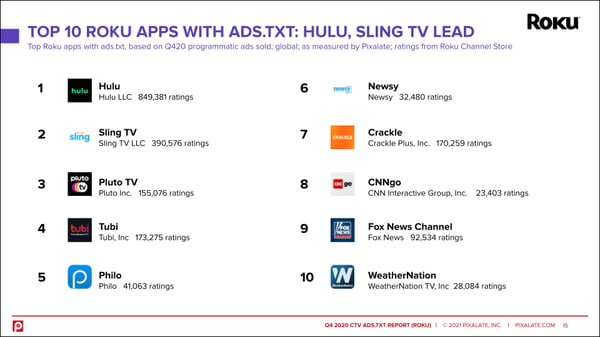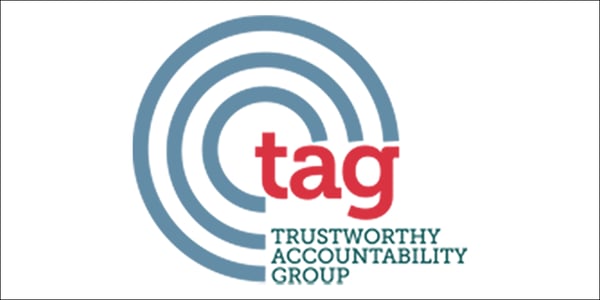
This week's review of ad fraud and quality in the digital advertising space.

This Pixalate blog details the top 10 Roku apps* that have app-ads.txt files, as of the end of Q4 2020 ("Top apps” are based on the number of programmatic ads sold, net of invalid traffic (IVT), as measured by Pixalate. Learn more in Pixalate's Connected TV App-Ads.txt Reports for Roku Apps.

In a blog post, "Google on Wednesday clarified its plans for targeted advertising, promising not to use other ways to 'track' users around the internet after it ends support for cookies in Chrome by early 2022," reported CNBC.

Adweek reports that Google's announcement is a "body blow to the independent ad-tech sector’s proposed approach to audience targeting which has primarily centered on using hashed email addresses as a substitute for the cookie."

The "Trustworthy Accountability Group and the China Advertising Association are rolling out anti-fraud certifications as well as brand-safety certifications in China, the organizations said Monday," reported MediaPost. "The groups will begin issuing certifications immediately to companies that meet the organizations' anti-fraud and brand-safety standards."

"Marketing fraud impacts companies of all sizes to the tune of millions of dollars per year, according to the 2021 Marketing Fraud Benchmarking Survey and Report conducted by Renegade," reported MediaPost. "Two-thirds of respondents said they experienced some type of marketing fraud in the past year, and more than 20% believe that at least one-quarter of the contacts in their marketing and sales database are fake or fraudulent, or are actually bots."
*By entering your email address and clicking Subscribe, you are agreeing to our Terms of Use and Privacy Policy.
These Stories on Weekly Recaps
*By entering your email address and clicking Subscribe, you are agreeing to our Terms of Use and Privacy Policy.

Disclaimer: The content of this page reflects Pixalate’s opinions with respect to the factors that Pixalate believes can be useful to the digital media industry. Any proprietary data shared is grounded in Pixalate’s proprietary technology and analytics, which Pixalate is continuously evaluating and updating. Any references to outside sources should not be construed as endorsements. Pixalate’s opinions are just that - opinion, not facts or guarantees.
Per the MRC, “'Fraud' is not intended to represent fraud as defined in various laws, statutes and ordinances or as conventionally used in U.S. Court or other legal proceedings, but rather a custom definition strictly for advertising measurement purposes. Also per the MRC, “‘Invalid Traffic’ is defined generally as traffic that does not meet certain ad serving quality or completeness criteria, or otherwise does not represent legitimate ad traffic that should be included in measurement counts. Among the reasons why ad traffic may be deemed invalid is it is a result of non-human traffic (spiders, bots, etc.), or activity designed to produce fraudulent traffic.”

